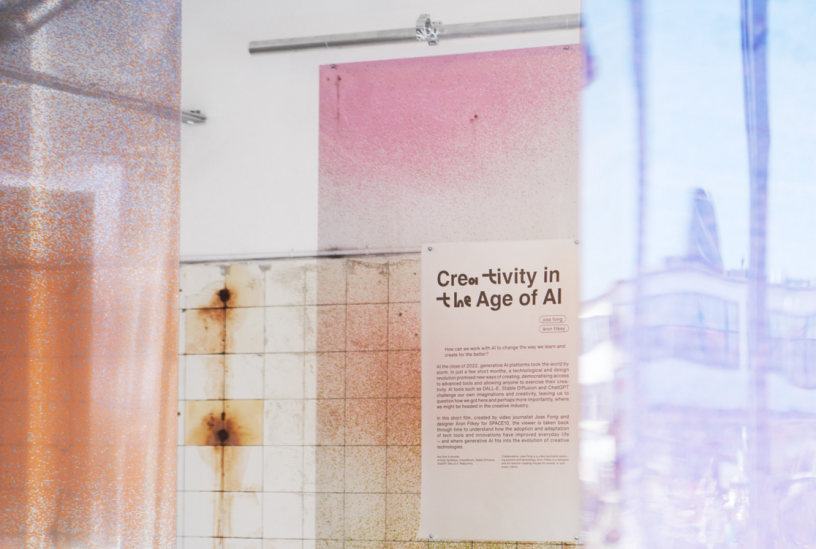Everything in the future will be a remix of everything else anyway (to a high degree, it already is; for instance, HBO is closing the deal to create a Harry Potter TV show). So why attempt to create something if anyone else could just do it or remix it? Even without an AI prompting itself, a monkey sitting at a typewriter for an infinite amount of time will likely prompt someday what you prompted today. So why bother? Why continue creating? Because of your intention.
Zarya of the Dawn: We conclude that Ms. Kashtanova is the author of the Work’s text as well as the selection, coordination, and arrangement of the Work’s written and visual elements. That authorship is protected by copyright. However, as discussed below, the images in the Work that were generated by the Midjourney technology are not the product of human authorship. Because the current registration for the Work does not disclaim its Midjourney-generated content, we intend to cancel the original certificate issued to Ms. Kashtanova and issue a new one covering only the expressive material that she created.
Spray Paint Can vs. AI: How the originality requirement under EU copyright acquis can be applied to AI-aided image production
EU wants Google, Facebook to start labeling AI-generated content: The European Commission is worried artificial intelligence tools like ChatGPT will result in more online disinformation.
Celebrities Use AI to Take Control of Their Own Images: Using AI-generated duplicates, brands also benefit, using stars in ways they never could before [paywall]
Publishers’ group warns that generative AI content could violate copyright law: A group whose members include the New York Times and the Washington Post has advice on how to navigate concerns surrounding AI.
Copyright Showdown: AI’s Next Frontier
A Concerning Trend: If the field can’t find a way to address this situation, things will begin to break. Response times will get worse and I don’t even want to think about what will happen to my colleagues that offer feedback on submissions. No, it’s not the death of short fiction (please just stop that nonsense), but it is going to complicate things.
‘Plagiarism machines’: Hollywood writers and studios battle over the future of AI
A battle royal is brewing over copyright and AI: Beware the Napster precedent [paywall]
Traduções por Inteligência Artificial (IA) Chegam a Portugal sem Se Fazer Anunciar: Neste momento circulam em Portugal, nas livrarias, em feiras do livro ou na companhia de alguns jornais, centenas de milhares de exemplares de clássicos ingleses, franceses, alemães, italianos ou russos traduzidos com recurso a programas de inteligência artificial (IA), do Google Translate ao ChatGPT, passando pelo DeepL. (…)
Tudo indica que um dos principais agentes desta situação seja a Book Cover Editora, que tem publicadas centenas de clássicos de diversas línguas, o mais das vezes com preços de cerca de 5 euros.
À primeira vista trata-se de uma oferenda aos leitores — clássicos a preços acessíveis. Mas na verdade a Book Cover é uma esfinge com alguns mistérios.
Todos os seus livros, excepto a série de Conan Doyle, são traduzidos por Lúcia Nogueira, a tradutora mais eficiente do planeta. Só em 2023 aparece na ficha técnica como tradutora de dezenas de obras, entre elas Guerra e Paz, com as suas mais de mil páginas, e outros romances volumosos. Nos últimos dois anos e meio terá traduzido cerca de oitenta clássicos, muitos deles extensos, como Os Miseráveis, E Tudo o Vento Levou ou Vinte Mil Léguas Submarinas.
Qualquer editor sabe que mesmo tradutores a tempo inteiro e com larga experiência são incapazes de traduzir mais de 10 a 15 páginas por dia, o que a incansável Lúcia Nogueira parece fazer antes do pequeno-almoço, seja a partir do inglês, do alemão, do italiano, do cirílico russo e em breve talvez do mandarim ou grego antigo.
A literatura está condenada, mas isso é o menos: A IA generativa provou ser um pesadelo para sites de ficção nalguns países, isto porque agora os escritores não precisam apenas de se preocupar em competir com a IA, eles também precisam preocupar-se em ser acusados de a usar.
Em Portugal, que dirão as editoras sobre estas obras, especialmente se forem originais, variadas e inesperadas? Sem necessidade de pagar aos autores, nem aos revisores, com tudo altamente facilitado, os editores serão claramente a favor. Numa primeira fase, talvez o neguem, mas, numa segunda, não vão hesitar em aumentar o lucro.
E os leitores? Talvez eles continuem a preferir os escritores humanos? A resposta é a mesma: “Por enquanto”.
AI and copyright in 2022 vs AI and Copyright: A Reply to Matt Hervey
AI and the American Smile: How AI misrepresents culture through a facial expression.
AI Imagery May Destroy History As We Know It
6 important AI near-future breakthroughs, or why the AI hype peak is likely to be ahead of us

The Metaculus Lens on AI: The Metaculus forecast for Artificial General Intelligence is May 11, 2032, with a 90% chance of human intelligence parity by 2040. Our forecasters deem it unlikely (5%) that we solve the control problem before weak AGI, and forecast a 52% chance of a positive transition to a post AGI world. In the short term, Metaculus predicts a 75% likelihood of an attempt to influence the 2024 US presidential election with AI-driven misinformation.
